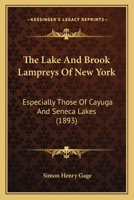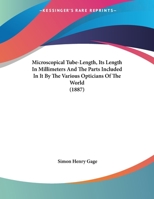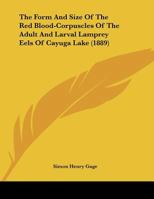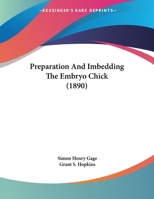The Microscope: An Introduction to Microscopic Methods and to Histology
Select Format
Select Condition 
Book Overview
THE MICROSCOPE by SIMON HENRY GAGE. Originally published in 1908. PREFACE: IN revising the matter for this, the seventeenth, edition of The Microscope changes have been made in every chapter in text and often in illustrations to render the subject more easily understood. Attention has been called to the newly devised Electron Microscope with its greatly increased magnifying power and resolution over the ordinary microscope to Polaroid for the micro-polariscope to some new plastics for mounting in place of Canada balsam to the high pressure mercury lamps for ultra-violet radiation and the bright mercury lines for photographing objects with the microscope. In general, however, the book retains its former character, and it is hoped that it will continue to serve students and users of the micro scope in understanding the underlying principles involved in micro scopical work. As a final word, I wish to express my thanks and appreciation for the new cuts loaned and other aid rendered by the American manu facturers, the Bausch Lomb Optical Company of Rochester and the Spencer Lens Company of Buffalo. The heads of those com panies, Edward Bausch and Harvey N. Ott, have been my friends and advisers for many years and have been ever ready to help me over the rough places in my microscopical career. Likewise it is a pleasure to render thanks to my University col leagues and to my fellow microscopists for their friendly interest and help also to Clara Starrett Gage, Ph. D. for aid in preparing illus trations, making corrections and revising the index for this edition. SIMON HENRY GAGE May 20, 1941. Contents include: INTRODUCTION AND THE ELECTRON MICROSCOPE . . i-3A 1-6 CHAPTER I 1-66 4 4ia 7-50 Microscopes and Their Parts. CHAPTER II . . 67-169 42-64 51-120 Bright-Field Microscopes Lighting, Natural and Artificial Experiments with Microscopes. CHAPTER III . . . 170-215 65-90 121-169 Dark-Field Microscopy and Its Application. CH PTER IV 216-272 91-119 170-221 The Polarizing Microscope Optics of the Mi croscope. CHAPTER V 273-302 120-124 222-239 Micro-Spectroscope Pocket Spectroscope. CHAPTER VI 303-324 125-130 240-2 sS Ultra-Violet Microscope Physical Analysis. CHAPTER VII 325-358 131-142 259-27 Interpretation of Appearances. CHAPTER VIII 359 39 8 i43 i 6 7 279-316 Magnification and Micrometry. CHAPTER IX 399 45o 168-199 317-363 Drawing with the Microscope and with Projec tion Apparatus Class Demonstrations. CHAPTER X 451-507 200-214 364-402 Photographing Embryos and Small Animals Photographic Enlargements Photographing with the Microscope. CHAPTER XI 508-615 215-249 403-463 Cabinets Slips and Cover-Glasses Mounting, Labeling and Storing Microscopical Prepara tions. CHAPTER XII 616-663 250-266 Fixing and Preservation of Tissues, Organs and entire Organisms Infiltrating Imbed ding, Sectioning, Staining and Mounting for the Microscope. CHAPTER XIII . Serial Sectioning of Organs, Small Animals and Embryos Preparation of Models. CHAPTER XIV Micro-Incinerations and the Optical Appliances for their Examination CHAPTER XV ... Brief History of Lenses and Microscopes. GENERAL BIBLIOGRAPHY . INDEX . . .... INTERPOLATION, TABLE OF METRIC AND ENGLISH MEASURES . . . . ..... This description may be from another edition of this product.
Format:Paperback
Language:English
ISBN:0192802577
ISBN13:9780192802576
Release Date:May 2002
Publisher:Oxford University Press
Length:96 Pages
Weight:0.22 lbs.
Dimensions:0.2" x 4.5" x 7.0"
More by Simon Henry Gage
Customer Reviews
5 customer ratings | 5 reviews
There are currently no reviews. Be the first to review this work.


































